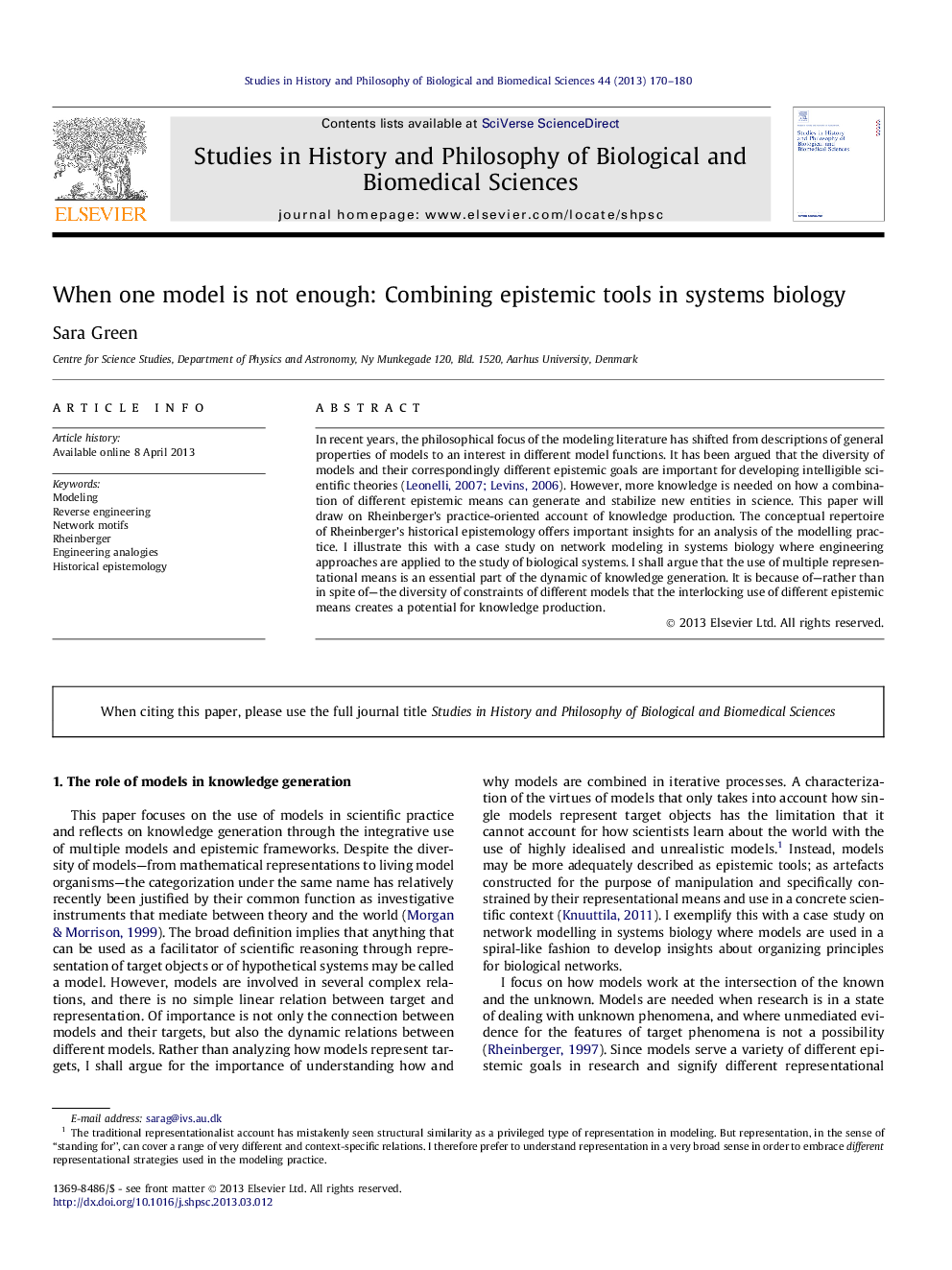| Article ID | Journal | Published Year | Pages | File Type |
|---|---|---|---|---|
| 1161914 | Studies in History and Philosophy of Science Part C: Studies in History and Philosophy of Biological and Biomedical Sciences | 2013 | 11 Pages |
•Rheinberger’s epistemology is used for understanding modeling in systems biology.•A focus on the constraints of different representational means is proposed.•A case from systems biology exemplifies reverse engineering of biological networks.•Analogies from engineering productively constrain the study of living systems.•Knowledge generation is understood as a spiral-like combination of models.
In recent years, the philosophical focus of the modeling literature has shifted from descriptions of general properties of models to an interest in different model functions. It has been argued that the diversity of models and their correspondingly different epistemic goals are important for developing intelligible scientific theories (Leonelli, 2007 and Levins, 2006). However, more knowledge is needed on how a combination of different epistemic means can generate and stabilize new entities in science. This paper will draw on Rheinberger’s practice-oriented account of knowledge production. The conceptual repertoire of Rheinberger’s historical epistemology offers important insights for an analysis of the modelling practice. I illustrate this with a case study on network modeling in systems biology where engineering approaches are applied to the study of biological systems. I shall argue that the use of multiple representational means is an essential part of the dynamic of knowledge generation. It is because of—rather than in spite of—the diversity of constraints of different models that the interlocking use of different epistemic means creates a potential for knowledge production.
